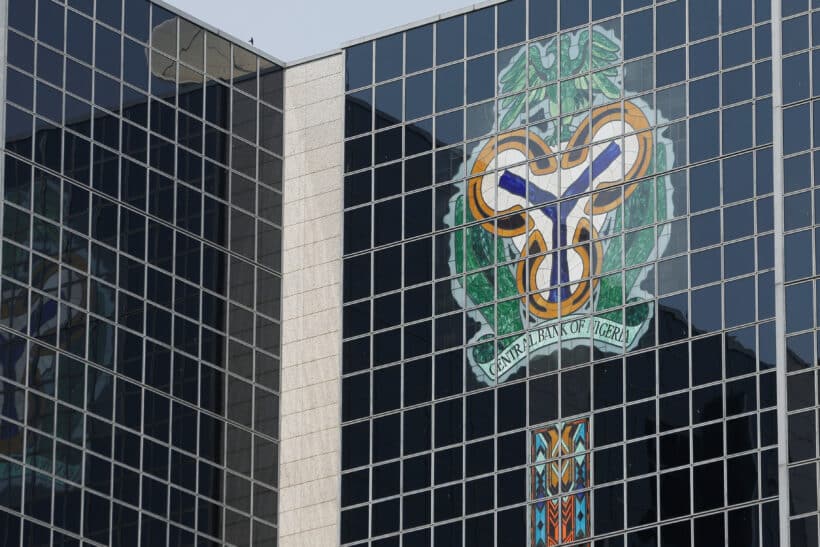
ABUJA, April 8 (Reuters) – Nigeria’s central bank has barred commercial lenders from accepting foreign currency-denominated collateral to grant naira loans, a move that could protect the banking system against a strengthening of the local currency, it said on Monday.
The regulator said in a circular that the practice it had observed of bank customers using foreign currency as collateral for naira loans was “prohibited”.
The central bank on Monday said it approved Eurobonds issued by the government or letters of credit issued by an offshore bank as eligible foreign currency collateral.
It told lenders to wind down all loans currently secured with dollar-denominated collateral within 90 days or face sanctions.
The naira has gained sharply against the dollar on both the official and parallel markets after suffering its second devaluation in less than a year in January.
The currency strengthened after the central bank raised interest rates in February and March, and lifted restrictions on foreign participation at its fixed-income auctions.
The bank now allows foreign investors to pre-fund their accounts and get naira at the prevailing exchange rate for bill auctions, analysts said.
In the past, lenders faced constraints in fulfilling foreign investors’ bids as they incurred extra costs on settlement day if they borrowed from the central bank’s discount window to pay for bills.
(Reporting by Chijioke Ohuocha; Editing by Alison Williams and Jan Harvey)

